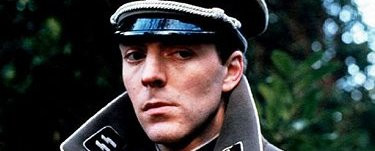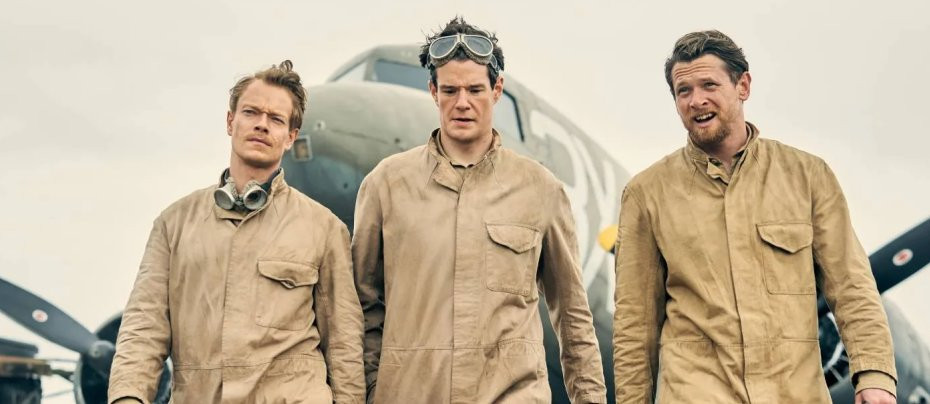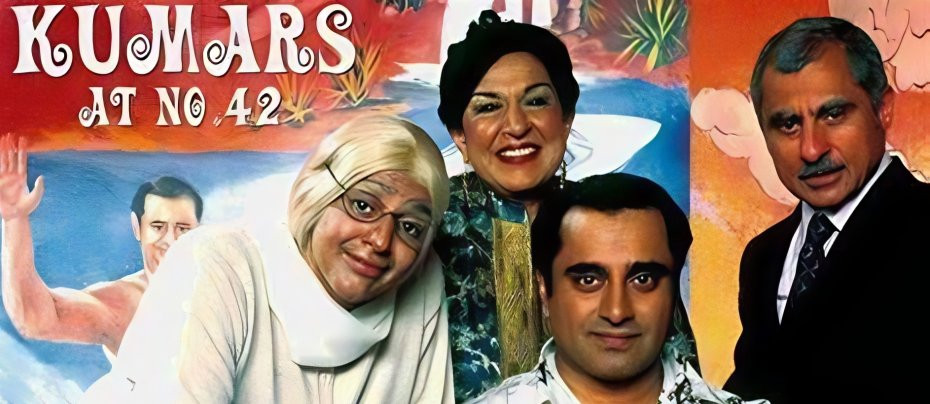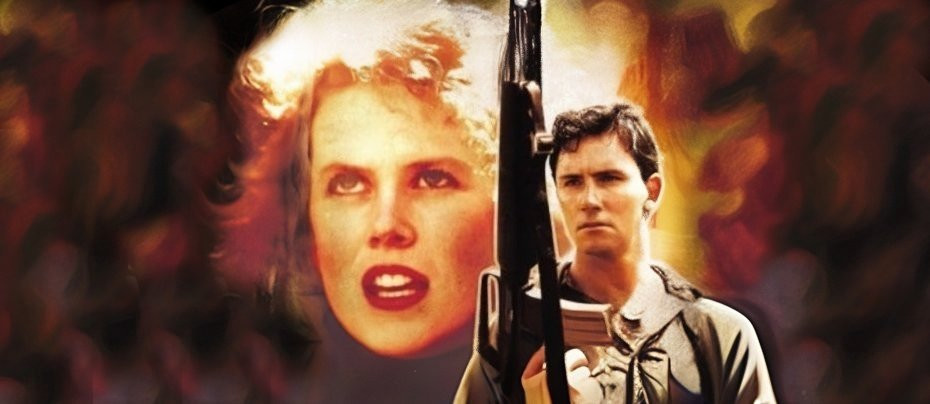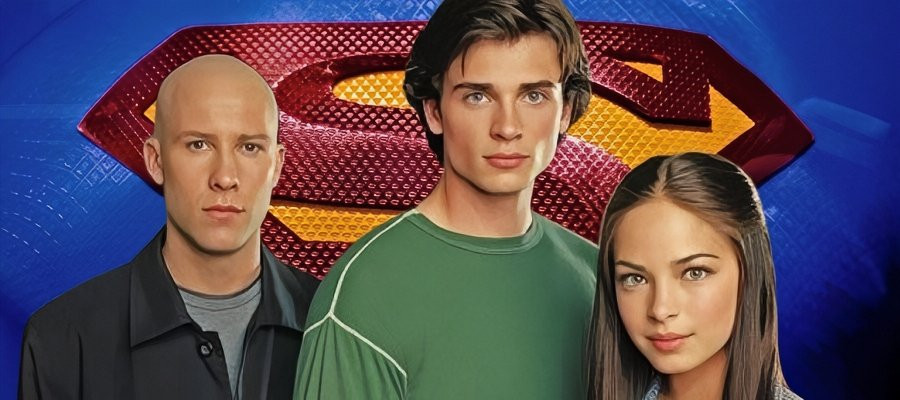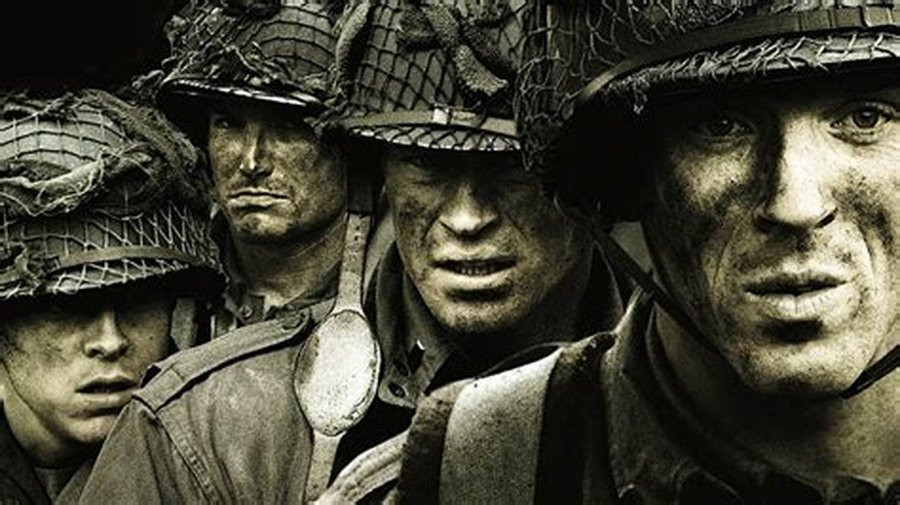
Band of Brothers
2001 - United StatesAlmost from the outset of television drama, the subject of warfare has been one of the prime staples of the medium. From the early days of the simple 'Gung Ho' exploits of starkly overly idealised stories of the adventures of fearless fighting men through to today's more realistically shaded, measured and morally complex depictions of the true, often horrific nature of combat, arguably the most recent dramatic pinnacle of contemporary television's on-going fascination with the subject of men at war was Band of Brothers.
The genesis of the television adaptation of historian Stephen E. Ambrose's epic best selling book arose following the completion of the critically acclaimed motion picture Saving Private Ryan, when director Steven Spielberg and star Tom Hanks were both individually contemplating developing projects based upon two of Ambrose's books. When the two giants of the industry finally decided that rather than pursue separate projects they would instead collaborate, Spielberg set aside his plans for the adaptation of "Citizen Soldiers", in favour of Hanks' preference, "Band of Brothers".
Both book and mini series chronicle the experiences of the men of Easy Company, a unit of 147 combat paratroopers from their first day of training onwards via the major landmark events of the brutal conflicts of the European Theatre of War including D-Day, Holland, Market-Garden, the Battle of the Bulge, and the capture of Hitler's Eagle's Nest through to the end of the conflict itself.
Having enjoyed an earlier Emmy award-winning collaborative success for the mini series, From the Earth to the Moon, Hanks was keen to realise the project with cable channel HBO for reasons he commented on at the time: "I have a great history with HBO, we've done this kind of thing before. They understand the type of authenticity we're going for and they throw away all the rules - we can say what we want to, the stories can last as long as they need to, and we, as storytellers, think that's very important."
With the arrival of Tony To, whom had been a key member of Hanks' production team on From the Earth to the Moon; casting for Band of Brothers got underway. Concerned more with finding actors who could convey the emotional essence of the characters rather than concentrating on their physical likenesses, the list of hopefuls was eventually narrowed down to the final 50 actors who would embody the television incarnations of Ambrose's Easy Company, with Spielberg himself operating the camera and Hanks staging the action for the sessions and keeping a watchful eye on how the actors interacted with each other in differing roles to finally match the right part for each man.. However, for the crucial roles of Richard Winters, who was to become Easy Company's commanding officer, and Winter's closest friend, Lewis Nixon, rising young English actor Damian Lewis and American Ron Livingston were cast almost upon first walking through the door of the casting session.
Having previously met with the real Winters, Hanks had clear ideas of the qualities needed to secure the role: "an enigmatic leader who, at the same time, is the exact symbol that you would want to have for a leader; a guy you can't explain, but who explains himself by his mere presence. And in that case, you're looking for something chromosomal. You're looking for someone with a certain air about them that comes across even before he opens his mouth, and Damian had that without question. As soon as he sat down, we knew."
Prior to filming, the newly formed group of actors undertook a tough, gruelling and uncompromising two-week boot camp overseen by Captain Dale Dye, USMC (ret.), the hard-bitten, no-nonsense former soldier given the task of transforming a loose group of men into a fully functioning, highly trained company of soldiers. Having reaped the benefits of employing a similar approach with "Saving Private Ryan," Hanks and Spielberg were convinced that such a course of intensive training was an essential, process, as well as providing perhaps the most important and effective rehearsal time possible for the actors. In essence, the training at Captain Dye's boot camp successfully transformed a group of actors into effective soldiers and the spirit of Easy Company became a reality.
The actors cast and successfully moulded them into a tight and effective unit, the production team next turned its attention to deciding on and securing the perfect location to realise the 11 towns, fields and forests necessary for Easy Company's odyssey across the blood-soaked ground of the European Theatre of War. To this end, Spielberg and Hanks opted to return to the Hatfield Aerodrome outside of London, a location that offered office space, empty aeroplane hangars for sets, and 1000 acres of open space, where sections of "Saving Private Ryan" had previously been filmed. As Hanks observed about their choice of location: "it's a first-rate production facility for recreating the past, as well as creating the next generation of special effects."
Despite the production being allocated a different direction for each episode, the producers took great care in ensuring that an overall coherence and style was adhered to which ultimately lent the finished production its final, memorably gritty, almost documentary-like visual style. As Tony To explained: "Steven [Spielberg] has set such a template for us with "Ryan" that we agreed to use the filmmaking languages he created there - the handheld, subjective point of view, the image shaker, the grunt's view of the battle. From that basic template, we've let the directors evolve it into something new, something that will become identifiable as 'Band of Brothers'".
But ultimately, what makes Band of Brothers the powerful, emotive and memorable example of superior big-budget television drama that it undoubtedly is, is the core honesty, integrity and total conviction brought to the screen by the simply superb performances from an unusually large, but unquestionably perfectly cast and committed ensemble group of actors. Through their sensitive, unsentimental interpretation of the intelligently adapted scripts, we the viewers are presented with a compelling yet insightful and intimate portrait of the ravaging, dehumanising effects of war on ordinary men faced with having to deal with the reality of senselessly violent, sometimes seemingly insane, extraordinary situations. Perhaps more than any other theme which it deals with, Band of Brothers successfully and powerfully illustrates the loss of innocence experienced by the entire civilised world due to the effects of war by concentrating on the smaller, more intimate loss of innocence and heavy sacrifice experienced by the small, yet diverse group of men who made up the ranks of Easy Company.
Perhaps it’s only fitting for the final - accurate - summation of the success of Band of Brothers should come directly from Tom Hanks himself: "the hope that the viewer will have an emotional and human experience that will allow them to appreciate the sacrifice that the men who fought in the Second World War gave."
Seen this show? How do you rate it?
Seen this show? How do you rate it?
Published on November 28th, 2018. Review: SRH (2005).


